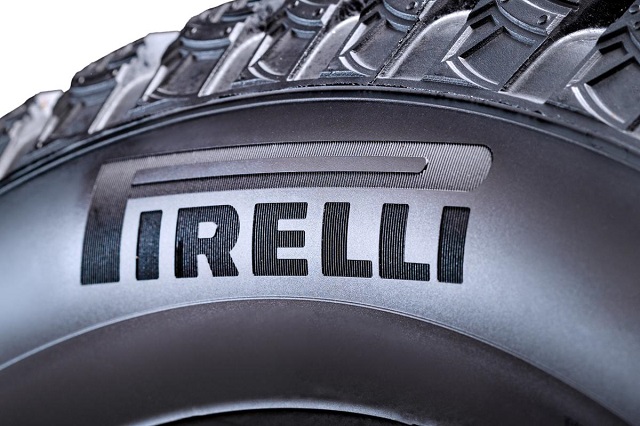
PIRELLI & C.S.P.A. is a famous Italian tire manufacturer, whose main brands "PIRELLI" and its Chinese equivalence "倍耐力 (Bei Nai Li)" enjoy high reputation in the tire industry and other relevant areas and both marks have been identified as well-known trademarks on "tires" in multiple decisions in China.
With a recent invalidation decision against trademark registration No. 11866809 for 倍耐特(Bei Nai Te) on "tire repairing composition; glue, non-stationary, non-household; industrial glue; industrial adhesive; polyurethane; tire adhesive; leather adhesive; adhesive for advertising; viscose" in class 1, the CNIPA fully supported the request of PIRELLI by directly granting the cross-class protection for PIRELLI's Chinese well-known trademark "倍耐力(Bei Nai Li)" and invalidated the aforementioned Disputed Trademark which has been registered over 5 years.

The Disputed Trademark was filed on December 10, 2012 and registered on May 20, 2014. In the case, the invalidation was filed on May 7, 2020 when the Disputed Trademark has been already registered over 5 years. According to "5-year invalidation limitation rule" ,the invalidation has to be filed based on well-known trademark claim and malicious registration.
5-year invalidation limitation rule
According to the relevant provisions of China's Trademark Law, after a trademark has been registered over 5 years, it can no longer be invalidated based on relative grounds (including similarity argument, violation of prior rights, etc.). However, "in the event of malicious registration, owners of well-known trademark may exempt from the aforesaid five-year limitation".
After examination, the CNIPA decided:
- The evidence provided by the Applicant could prove that the cited trademark PIRELLI and 倍耐力 (Bei Nai Li) both have been well-known to the related consumers on tires before the filing date of Disputed Trademark.
- The Disputed Trademark 倍耐特 (Bei Nai Te) is similar to the cited trademark 倍耐力 (Bei Nai Li) in terms of word component and pronunciation. The Disputed Trademark constitutes the copy and imitation of the cited trademarks.
- The registration and use of the Disputed Trademark on "industrial adhesive; tire adhesive; etc." may objectively mislead the public to believe that the goods bearing the Disputed Trademark originate from or have a specific connection with the Applicant, and improperly use the Applicant's reputation, which may damage the interests of the Applicant.
Furthermore, in addition to the Disputed Trademark in the case, the owner of Disputed Trademark also applied for the registration of other trademarks containing the same Chinese characters 倍耐特 (Bei Nai Te), and they did not give a reasonable explanation.
Taking the above factors into consideration, CNIPA believes that this case belongs to the situation referred in Article 45.1 of the Trademark Law, namely, "in the event of malicious registration, owners of well-known trademark may exempt from the aforesaid five-year limitation" and invalidated the Disputed Trademark in accordance with Article 13.3 of Trademark Law, namely "where a mark is a copy, imitation, or translation of a third party's well-known trademark that has been registered in China in respect of different or other types of goods, which may mislead the public and damage the interests of the registrant of the well-known trademark, such mark shall not be registered and shall be prohibited from being used".
Case Analysis
As mentioned above, there is no time limit for using absolute grounds to invalidate the trademark. However, in addition to this, due to the existence of 5-year limitation rule, the invalidation has a certain restriction on time limit and grounds. Having said that, given the special protection for well-known trademarks, the owner of a well-known trademark is able to break such 5-year limitation rule in certain cases. Namely, it shall follow below 3 elements:
(1) the cited trademark constitutes the well-known trademark;
(2) the disputed trademark is a "copy, imitation or translation" of a well-known trademark; and
(3) the disputed trademark is "malicious registration".
From the textual perspective, it seems that merely constituting "copy, imitation or translation" of a well-known trademark does not directly prove "malicious registration". It required the Applicant to prove bad faith additionally and separately.
According to related judicial interpretations, when judging whether the Disputed Trademark is "malicious registration" against other's well-known trademark, the following elements shall be taken into account to determine the subjective factors:
(1) the awareness of the cited mark;
(2) reasons for the applicants to apply for the disputed trademark;
(3) specific circumstances with respect to the use of the disputed trademark.
Especially, if the cited trademark has a high degree of awareness and the applicant of disputed trademark has no justifiable reasons, it may presume that the disputed trademark constitutes "malicious registration".
In the captioned case, actually there are only 30 trademarks under the name of the applicant of the disputed trademark. The number is not so big nor is there any obvious trace of copying other brands, meaning it is not a typical trademark squatter. Under such circumstances, the proof of its bad faith is mainly through the following aspects:
(1) Reputation: the Applicant's trademark "PIRELLI/倍耐力" has reached the level of being well-known to the relevant public and enjoyed high distinctiveness.
(2) Similarity: the disputed mark is only one Chinese character different from the cited mark (Te instead of Li), and the goods of the disputed mark "tire repairing composition; etc." are closely related to "tire" of well-known trademark.
(3) Competitors in the same industry: "Shanghai Fushuo Auto Parts Co., Ltd.", the owner of the disputed trademark, specializes in "auto parts".
(4) Repeated Applications: the disputed trademark owner repeatedly copied the cited trademark 倍耐力(Bei Nai Li) and applied for multiple identical trademarks of 倍耐特(Bei Nai Te).
From the result of the examination, the CNIPA took into consideration the Applicant's reputation, the relevance of the goods and especially the fact that during the invalidation procedure the trademark Applicant did not give a reasonable explanation for registering multiple identical conflicted trademarks for "倍耐特 (Bei Nai Te)". Thus CNIPA concluded that the Disputed Trademark is registered in bad faith.
Conclusion
"Bad Faith" is a complex word. In recent years, with the introduction of the new Trademark Law, China has been continuously improving the system and the means to combat malicious trademark registration. In various cases and situations, there are gradually clearer explanations and instructions on how to judge "Bad Faith".
In this case, when the owner of a well-known trademark tries to invalidate a trademark that is registered over 5 years, the actual use of the disputed trademark, the application situation, the business address and the industry are all important factors that are considered to constitute the element of "malicious registration". Furthermore, given the high distinctiveness of well-known trademark, malice may also be presumed in the absence of justifiable reasons by the disputed trademark owner.
This also provides inspiration to other rights holders that even if a trademark has been registered for more than 5 years and cannot be invalidated through general relative grounds, the owner of a well-known trademark is encouraged to actively try and not to be afraid of the requirement of proof of "malicious registration". It indeed has the opportunity to invalidate the dispute trademark as long as it is justified.
In addition, the successful invalidation against 倍耐特 (Bei Nai Te) also depends on the PIRELLI's long-term active defense of its rights. The completion or attainment of a well-known trademark recognition is not an end. For the sake of protecting their trademark, owners of well-known trademarks should take more proactive actions to prevent the trademark from being diluted.
HFG represented Pirelli in the case.
The content of this article is intended to provide a general guide to the subject matter. Specialist advice should be sought about your specific circumstances.


